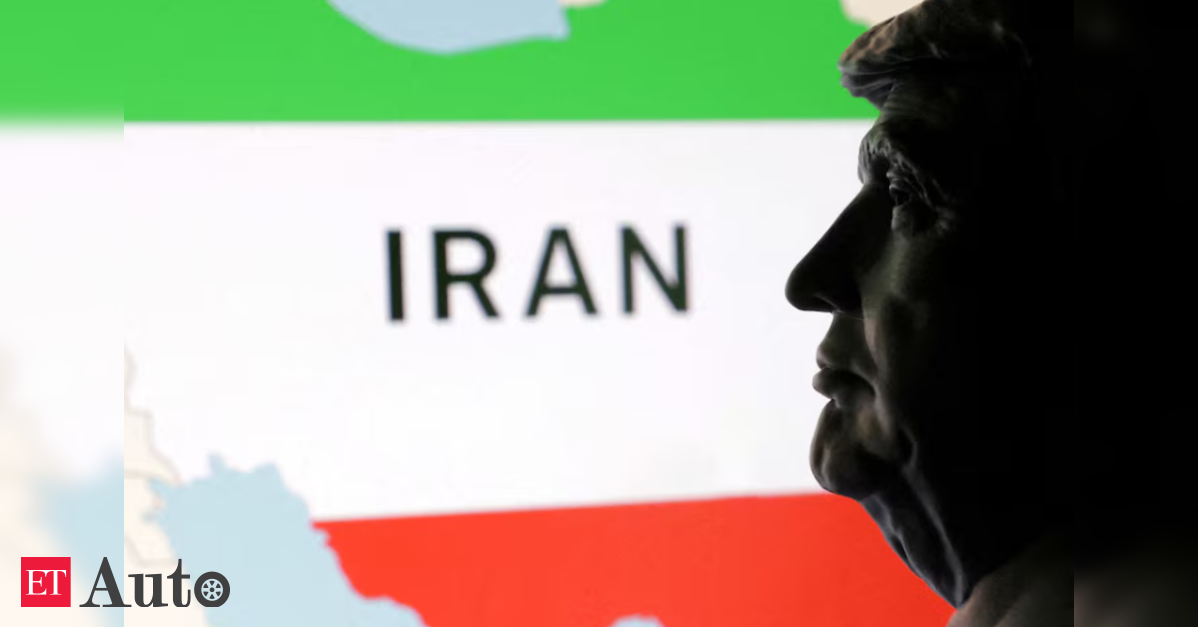How Trump's citizenship policy affects Nigeria (1)
INTRODUCTION

Trump’s Executive Order, titled “Protecting the Meaning and Value of American Citizenship,” is aimed at ending birthright citizenship for certain children born in the United States. This order obviously seeks to deny automatic citizenship to children born on U.S. soil whose parents are neither U.S. citizens nor lawful permanent residents, including those who are undocumented or in the country on temporary visas. This order contravenes the Fourteenth Amendment, Section 1, of the Constitution of the United States of America, which was ratified in 1869. It provides that:
“All persons born or naturalized in the United States, and subject to the jurisdiction thereof, are citizens of the United States and of the State wherein they reside. No State shall make or enforce any law which shall abridge the privileges or immunities of citizens of the United States; nor shall any State deprive any person of life, liberty, or property, without due process of law; nor deny to any person within its jurisdiction the equal protection of the laws.”
The constitutionality of President Trump’s order has since become the subject of many suits across America. Several Federal District Courts issued orders blocking enforcement of Trump’s Executive Order. They held that citizenship by birth is an unequivocal constitutional right and “one of the principles that makes the United States the great nation it is. The president cannot change, limit or qualify this constitutional right via Executive Orders.” The Supreme Court will on May 15, 2025, hear arguments on Trump’s claim that there is no automatic guarantee to birth-right citizenship. Is Trump’s policy constitutional? Can he use an Executive Order to override the Constitution birthed since 1878?
The adverse effects of American citizenship on Nigerians and other Africans
United States nationality law outlines the criteria under which an individual acquires U.S. nationality. In the U.S., nationality is generally obtained through provisions in the Constitution, various laws, and international treaties. Citizenship, however, is established as a right by section 1 of the Fourteenth Amendment to the US Constitution, not as a privilege, for individuals born within U.S. territory or its jurisdiction, as well as those who have been “naturalized.” Although the terms “citizen” and “national” are sometimes used interchangeably, “national” is a broader legal term, meaning a person can be a national without being a citizen. Citizenship, on the other hand, refers specifically to nationals who hold the status of being a citizen (Wikipedia ‘United States Nationality Law’ <https://en.m.wikipedia.org/wiki/United_States_nationality_law> accessed on the 31st Jan 2025).
The move to end birthright citizenship has sparked significant legal debates. Many Nigerians in the diaspora argue that such executive orders conflict with the U.S. Constitution’s 14th Amendment, which guarantees citizenship to all individuals born on American soil. The contention is that an executive order alone is insufficient to amend this constitutional provision, leading to prolonged legal battles and uncertainty for affected families.
There is no denying that the executive order indeed is blatantly unconstitutional as stated by a Federal District Court judge in Seattle, John C. Coughenour, who issued a temporary restraining order halting the U.S. president’s plan. This policy, if upheld, could also increase undocumented populations, as children of noncitizens would have no legal status. Even Nigerian parents residing legally in the U.S. A few weeks ago, three U.S. citizens, one with cancer, were deported to Honduras alongside their mothers for being in the U.S. illegally, but not yet citizens. Others could face uncertainties regarding their U.S.-born children’s citizenship status.
This policy could deter Africans from migrating to the U.S., fearing instability in their children’s citizenship status. If upheld, the order could set a precedent affecting birthright citizenship interpretations in other countries, potentially influencing global migration patterns.
The president’s order, one of several issued in the opening hours of his presidency to curtail immigration, legal and illegal, declared that children born in the United States to undocumented immigrants after February 19, 2025, would no longer be treated as citizens. The order would also extend to babies born to mothers who are in the country legally but temporarily, such as tourists, university students or temporary workers, if the father is a noncitizen.
In response, 22 states, along with activist groups and expectant mothers, filed six lawsuits to block the executive order, arguing that it violates the 14th Amendment. Legal precedent has long interpreted the amendment — which states that “all persons born or naturalized in the United States, and subject to the jurisdiction thereof, are citizens of the United States” — as applying to every baby born in the U.S., with a few narrow exceptions: children of accredited foreign diplomats, children born to noncitizens in U.S. territories occupied by an invading army, and, at one point, children born to Native Americans on reservations.
Judge Coughenour’s ruling marks the start of what is likely to be a prolonged legal battle between the new administration and the courts over President Trump’s ambitious second-term agenda, which aims to overhaul American institutions in ways that could be seen as violating legal precedents. Other executive orders, including efforts to remove job protections for career federal employees and speed up deportations, are also facing legal challenges.
Judge Coughenour’s decision was pointed: “I’ve been on the bench for over four decades,” he said. “This is a blatantly unconstitutional order. Where were the lawyers when this decision was being made?” After the hearing in Seattle, Washington State Attorney General Nick Brown called the executive order “un-American,” though he cautioned that the battle is far from over.
In a status conference about the Maryland case, Joseph W. Mead, an attorney from Georgetown Law School’s Institute for Constitutional Advocacy and Protection, who represents four pregnant mothers and two nonprofit groups, argued that the courts should act quickly so the mothers can know the legal status of their future children. “Mothers today now have to fear that their children will not be granted the U.S. citizenship they’re entitled to,” he said (Mike Baker, Mattathias Schwartz ‘Judge Temporarily Blocks Trump’s Plan to End Birthright Citizenship’ <https://www.nytimes.com/2025/01/23/us/politics/judge-blocks-birthright-citizenship.html> accessed on the 31 Jan 2025.).
Another concern is the economic reality that many African immigrants face, even after obtaining American citizenship. While the U.S. is often seen as a land of opportunities, many Africans find it difficult to break into the job market due to systemic racism, credential disparities and the challenges of navigating the American labour market. Even with citizenship, the discrimination and biases that many African immigrants face often limit career growth and financial stability. For many, the promise of economic prosperity remains unfulfilled.
Socio-economic implications
In addition to the legal and psychological implications, Trump’s executive orders also had socio-economic consequences for African families. Many African immigrants who went to the U.S. to provide a better life for their children now faced heightened financial and emotional strains due to uncertainty surrounding their children’s citizenship status. In many cases, parents who had worked tirelessly to support their families were left to navigate a legal landscape that made it harder for them to secure stable futures for their children. This uncertainty extended to the children themselves, who, in some cases, had to grapple with a feeling of displacement and alienation in a country where they had been born but could not always be guaranteed full protection under the law. Discrimination reigns supreme.
While the U.S. has long served as a magnet for African professionals—particularly from Nigeria, where education and employment opportunities are often limited—Trump’s executive order raised a more urgent concern: the future of the African brain trust. The order not only created a hostile environment for those hoping to secure a better life for their families but also led many to question whether the long-term impact would be a “brain drain” of a different kind. Would Nigerians (and Africans), disillusioned by an unwelcoming America, begin to reconsider their plans for raising a family on American soil and return home instead?
There is also systematic discrimination in employment and society. Despite being among the most educated immigrant groups in the United States, Nigerian and other African immigrants often encounter systemic challenges. A study published in the Journal of Race, Ethnicity, and Politics found that Nigerian immigrants experience both racial and workplace discrimination, which negatively impacts their overall satisfaction with life in the United States Esther Jack-Vickers).
Suspension of foreign assistance programmemes
Trump complained about international agreements and initiatives “that do not reflect our country’s values or our contributions to the pursuit of economic and environmental objectives”, saying they “steer American taxpayer dollars to countries that do not require, or merit, financial assistance in the interests of the American people”.
Trump’s executive order freezes disbursement of all US foreign development assistance for 90 days pending a review of “programmematic efficiencies” and ensuring that disbursements are “aligned with the foreign policy of the President of the United States”, arguing “foreign aid industry and bureaucracy are not aligned with American interests and in many cases antithetical to American values”.
Under the executive order, all department and agency heads with responsibility for the US foreign development assistance programmemes shall immediately pause new obligations and disbursement of development assistance funds to foreign countries and implementing non-governmental organisations, international organisations and contractors. (To be continued).
Thought for the week
“The criteria for serving one’s country should be competence, courage and willingness to serve. When we deny people the chance to serve because of their sexual orientation, we deprive them of their rights of citizenship, and we deprive our armed forces the service of willing and capable Americans”. -Dianne Feinstein













